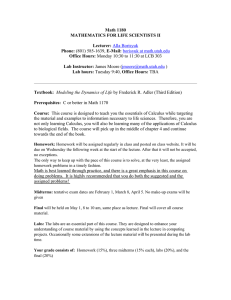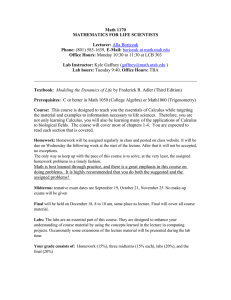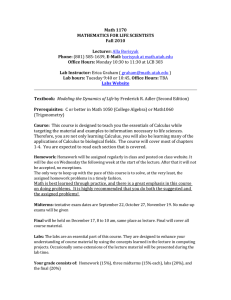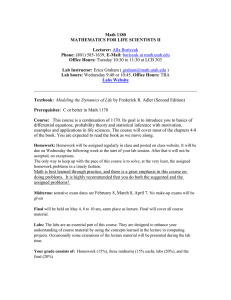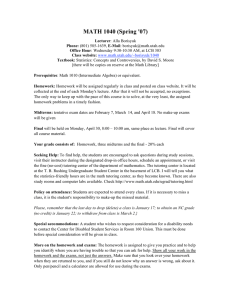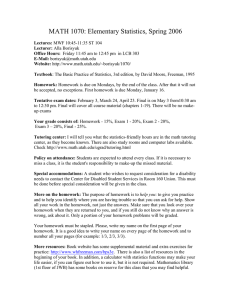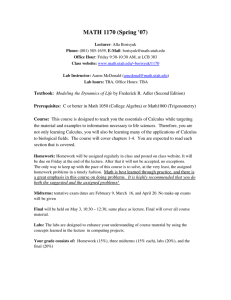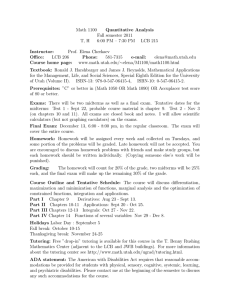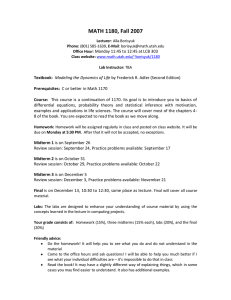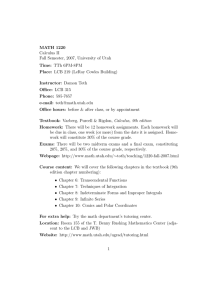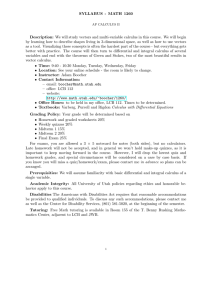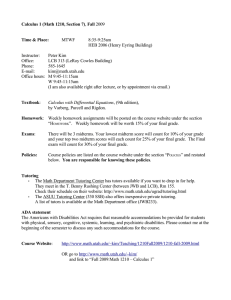Math 1170 MATHEMATICS FOR LIFE SCIENTISTS Lecturer: Phone:
advertisement
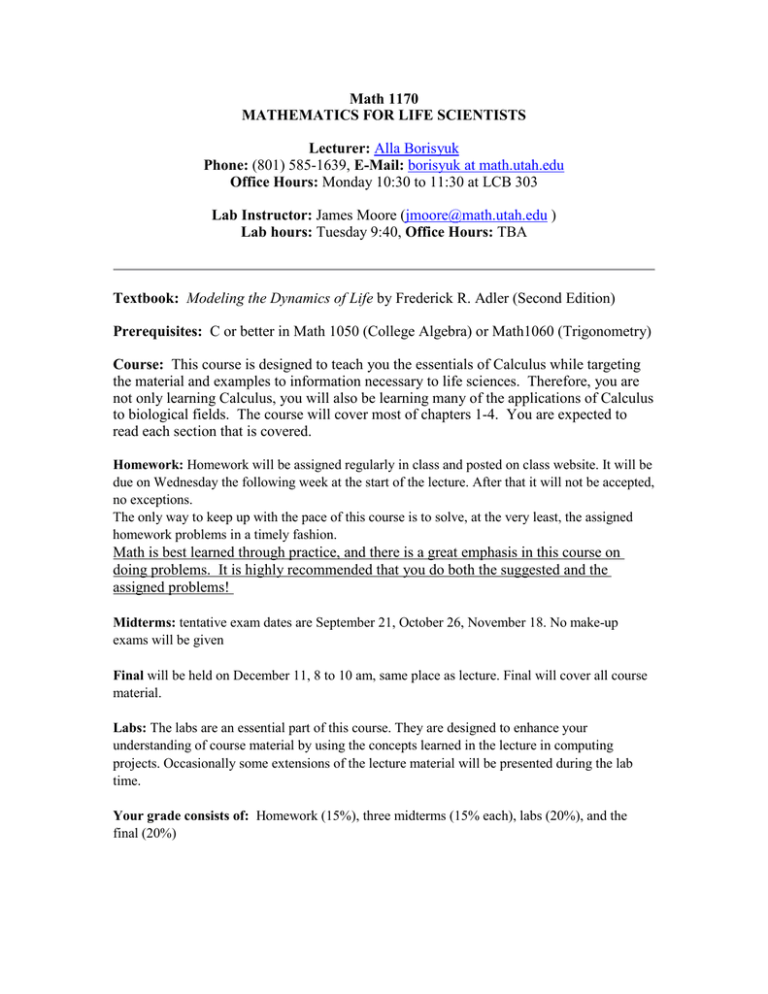
Math 1170 MATHEMATICS FOR LIFE SCIENTISTS Lecturer: Alla Borisyuk Phone: (801) 585-1639, E-Mail: borisyuk at math.utah.edu Office Hours: Monday 10:30 to 11:30 at LCB 303 Lab Instructor: James Moore (jmoore@math.utah.edu ) Lab hours: Tuesday 9:40, Office Hours: TBA Textbook: Modeling the Dynamics of Life by Frederick R. Adler (Second Edition) Prerequisites: C or better in Math 1050 (College Algebra) or Math1060 (Trigonometry) Course: This course is designed to teach you the essentials of Calculus while targeting the material and examples to information necessary to life sciences. Therefore, you are not only learning Calculus, you will also be learning many of the applications of Calculus to biological fields. The course will cover most of chapters 1-4. You are expected to read each section that is covered. Homework: Homework will be assigned regularly in class and posted on class website. It will be due on Wednesday the following week at the start of the lecture. After that it will not be accepted, no exceptions. The only way to keep up with the pace of this course is to solve, at the very least, the assigned homework problems in a timely fashion. Math is best learned through practice, and there is a great emphasis in this course on doing problems. It is highly recommended that you do both the suggested and the assigned problems! Midterms: tentative exam dates are September 21, October 26, November 18. No make-up exams will be given Final will be held on December 11, 8 to 10 am, same place as lecture. Final will cover all course material. Labs: The labs are an essential part of this course. They are designed to enhance your understanding of course material by using the concepts learned in the lecture in computing projects. Occasionally some extensions of the lecture material will be presented during the lab time. Your grade consists of: Homework (15%), three midterms (15% each), labs (20%), and the final (20%) Seeking Help: To find help, the students are encouraged to ask questions, to come by during the office hours, schedule an appointment, or visit the no-cost tutoring center of the department of mathematics. The tutoring center is located at the T. B. Rushing Undergraduate Student Center in the basement of LCB. There are also study rooms and computer labs available. Policy on attendance: Students are expected to attend every class and a lab session. If it is necessary to miss a class, it is the student's responsibility to make-up the missed material. ADA policy The University of Utah seeks to provide equal access to its programs, services and activities for people with disabilities. If you will need accommodations in this class, reasonable prior notice needs to be given to the Center for Disability Services, 162 Olpin Union, 1-6020. CDS will work with you and the instructor to make arrangements for accommodations. More on the homework and exams: The homework is assigned to give you practice and to help you identify where you are having trouble so that you can ask for help. Show all your work in the homework and the exams, not just the answers. Make sure that you look over your homework when they are returned to you, and if you still do not know why an answer is wrong, ask about it. A Final Note: The best way to learn math is to practice it. If you have trouble with any of the concepts or the problems, talk to me, talk to the lab TA, or go to the tutoring center. Since ideas will build on each other throughout the semester, it is best to seek help as soon as possible.
